Rising Gas Prices: The True Cost of Going Electric
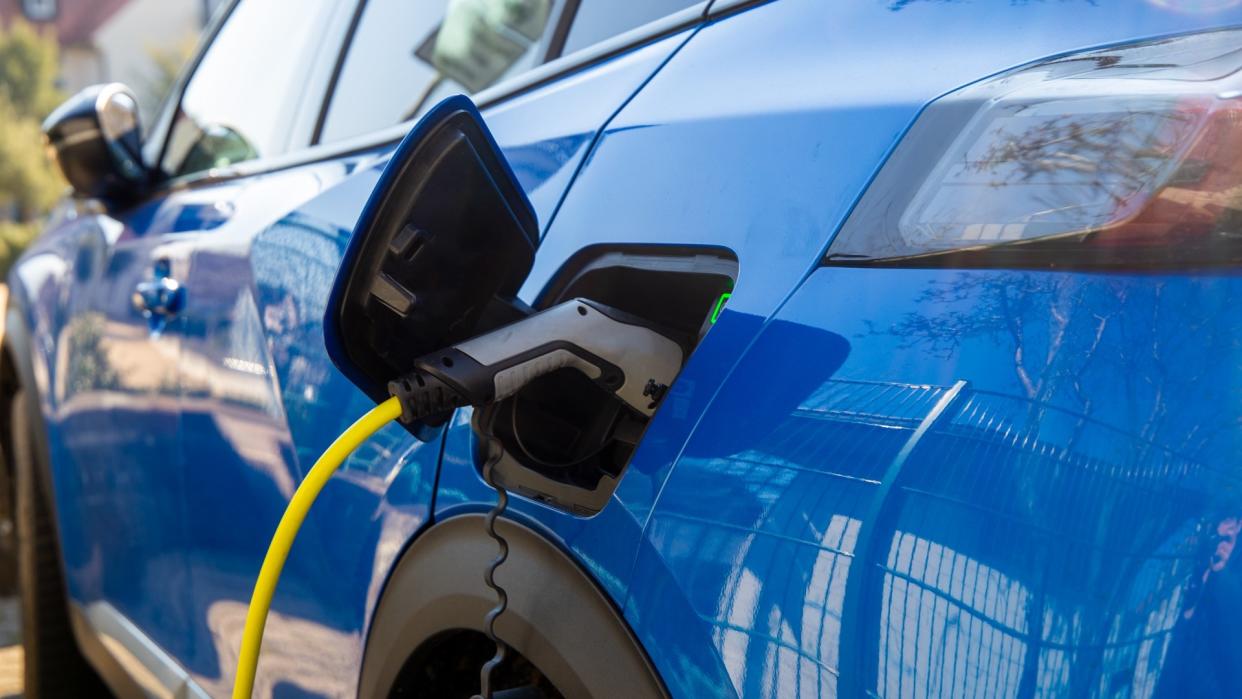
Gas prices reached record highs in early March, with an average price of $4.33 per gallon. And although prices have since taken a dip, experts warn that a combination of seasonal demand and rising oil prices could see gas prices make another surge in the near future, USA Today reported. With little hope for relief at the pump, you may be considering making the switch to an electric vehicle.
Take a Look: 10 Dollar Store Items That Aren't Even Worth the Buck
Read More: 20 Genius Things Mark Cuban Says To Do With Your Money
Currently, less than 1% of the 250 million cars, trucks and SUVs on the road in the United States are electric, according to Reuters. With only 17 million new cars sold each year, the road to phasing out gasoline will not be a short one. For those considering making the switch, that should leave plenty of time to learn about the many cost considerations that come with going electric. Here's a look at the most important among them.
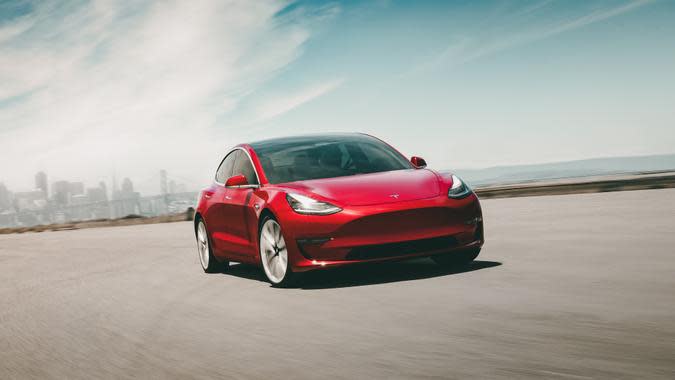
Popular Electric Vehicles
While it's true that Elon Musk built the world that allowed other automakers to introduce their own competitor EVs, Tesla is by no means a victim of its own success. The EV OG continues to crank out the battery-powered cars that outsell the rest by an emissions-free mile.
The Tesla Model Y sold 172,700 units in 2021, according to Car and Driver. The Model 3 sold 128,600. For context, the No. 3 Ford Mustang Mach-E sold just 27,140. Only one other model, the Chevy Bolt, sold more than 20,000 units and two of the top 10 sold fewer than 10,000 vehicles.
Three of the top-10 bestselling EVs in America are Teslas and all four Tesla models are in the top 12.
POLL: Do You Think States Should Suspend Their Gas Taxes?
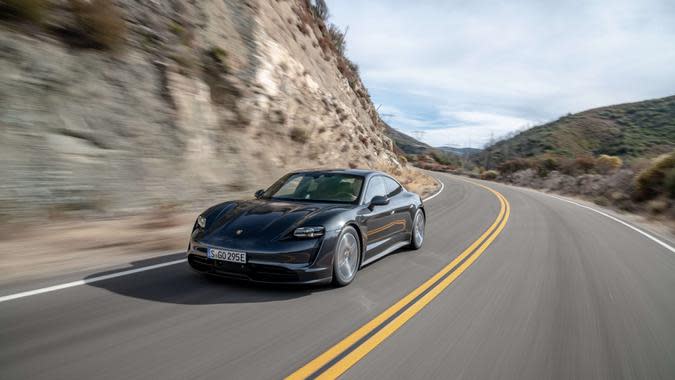
Average Purchase Price
Electric vehicles pay you back over time, but the upfront investment remains cost-prohibitive. The price of EVs had been falling, but even the electric segment has been swept away in the tide of inflation that has defined the auto industry since the spring of 2021. The average transaction price of an electric car is now $56,437, according to Kelley Blue Book (KBB), which is about $10,000 more than the industry average.
Of course, there's a pretty big spectrum.
Consumers now have more options for electric vehicles with over 30 battery and plug-in hybrid offerings in the U.S., according to automobile expert Matt Teske.
The Porsche Taycan Turbo S Cross has an MSRP of $187,600, but options like the Nissan Leaf and Mini Cooper SE go for under $30,000.

Auto Loan Rates
Although many factors can impact the rate for your electric car loan, Teske -- who has both owned and leased electric vehicles -- said that "the process has been no different than buying a gas-powered vehicle."
There is one difference that could lower the cost to own an electric vehicle, however. Some banking institutions and credit unions offer special financing discounts and incentives for customers who choose fuel-efficient vehicles.
Bank of the West, for example, offers a rate discount of up to 0.5% for the purchase of qualifying electric vehicles.
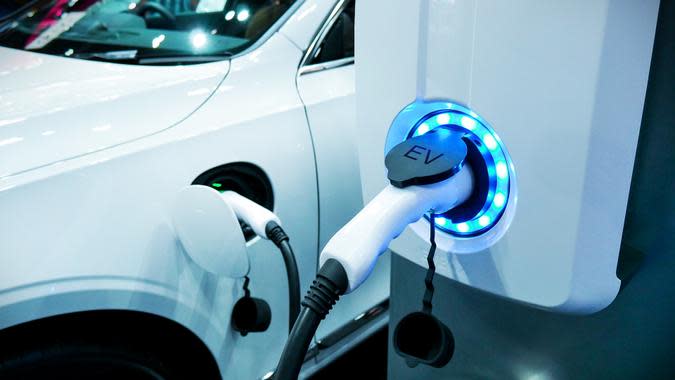
Fuel Costs
People hungry to get rid of their gas-guzzlers might be quick to ignore the fact that electricity prices can vary more than gas prices. The cost to power an electric vehicle can depend on several factors, however, not just current electric rates.
On average, it costs half as much to drive an electric vehicle, according to the U.S. Department of Energy -- and that's presuming a cost of $2.85 per gallon. But with gas prices now averaging over $4, the savings could be significantly more, despite the variability in the cost to power an EV.
At Energy.gov, the eGallon tool compares the two by state, using average gas prices and residential electricity prices. In states like Arkansas, you can power an EV for less than $1.
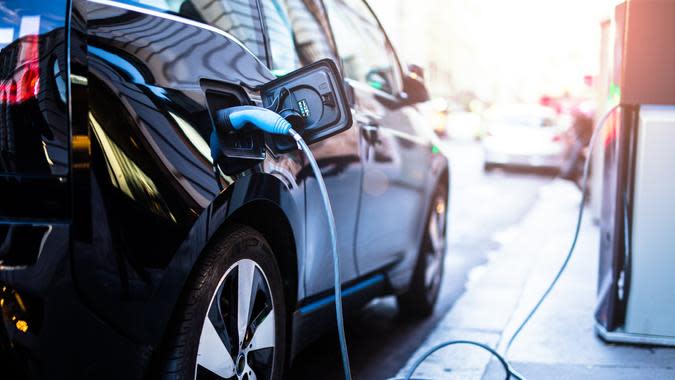
Charging Costs: At Stations
The cost to charge at a station varies, and some public stations even let you charge for free, Edmunds reported. There are also electric charging station chains, like Electrify America, which offer different charging rates depending on whether or not you are a member. The average per-minute rate for charging without a membership is $0.43 per kWh or $0.31 for members.

Charging Costs: At Home
In most cases, charging at home is cheaper than public charging, according to Forth, a nonprofit that promotes electric mobility. It's also more convenient, which is why 90% of charging takes place at home overnight, according to KBB.
It costs an average of $800 to install a charging station, according to HomeAdvisor.
Some energy providers also offer rebates. For example, Alliant Energy offers Wisconsin and Iowa customers up to a $500 rebate for purchasing and installing a Level 2 home charging station.

Maintenance Costs
Electric vehicles have far fewer moving parts, generate far less heat, and don't require motor oil, which makes them cheaper and easier to maintain than their gas-powered counterparts.
"One of the most interesting savings in maintenance costs with an electric vehicle is the brakes," said Teske. "An electric vehicle can use the electric motor to slow itself down, reducing the need to use a traditional brake pedal. This extends the life of the brake pads and rotors on an electric vehicle. A gas-powered car simply cannot do that." This process is known as regenerative braking.
Don't be mistaken, though -- electric vehicles will require some maintenance costs that you're familiar with, such as fixing windshield wiper blades and tire rotation.
Overall, however, maintenance costs are typically low. On the higher end of estimates, a Tesla will cost about $282 a year to maintain, according to Motor 1. For comparison, the average annual maintenance costs for a BMW i8 add up to $979.
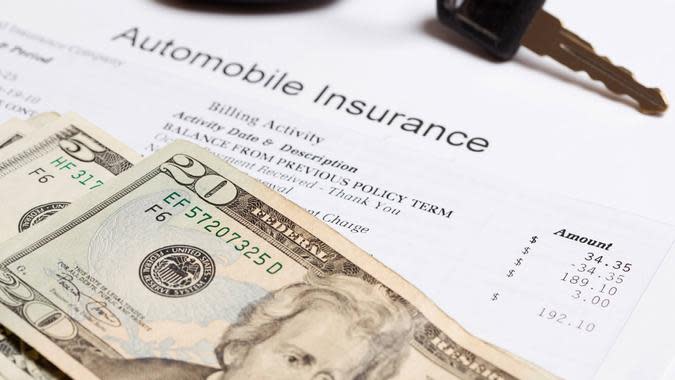
Insurance Costs
Electric vehicles can equal savings in many areas, but insurance might not be one of them. Depending on the insurance company and other factors -- such as your driving history -- your auto insurance rate could increase when you purchase an electric vehicle.
But Teske said he has not seen a difference in price to insure his Chevy Volt. In fact, he said safety features that some electric models have could make insurance cheaper in some instances. In the past, for example, the Tesla Model S has received some of the best safety ratings, "which some insurance companies reference when gauging a vehicle's safety and cost to insure," Teske said.
There's another factor to consider with auto insurance. According to Allstate, the installation of a vehicle charging station may alter your home insurance policy. For example, Oregon and California require some homeowners and condo owners to have liability coverage.

Tax Credits
The average purchase price for an electric vehicle is higher than the average cost for a gas-powered car, but you have to also factor in the tax credit you'll be eligible for, which brings the purchase price down. All-electric and plug-in hybrid cars purchased new may be eligible for a federal income tax credit of up to $7,500. The credit amount will vary based on the capacity of the battery used to power the vehicle, according to the U.S. Department of Energy. You may also be eligible for state and/or local incentives depending on where you live.

Depreciation
It's widely accepted that electric vehicles tend to depreciate in value quicker than gas-powered vehicles, according to Car and Driver. This is due to their higher cost compared to comparable gas-powered cars.
According to Drive Electric Colorado, however, that rule doesn't apply to all models. Most notably, Teslas are known for holding their value -- and Tesla sells more EVs than all the rest.

Trade-In Value
As early as 2019, Forbes was reporting that the Chevy Bolt had joined the Tesla lineup in holding its value more like an ICE vehicle than an EV.
Today, according to myEV.com, all EVs with ranges of 200 miles or greater can be expected to hold their trade-in value like a similar ICE model.

Sales of Electric Vehicles
According to an analysis by McKinsey, electric vehicle sales rose 65% from 2017 to 2018, but then that growth slowed to only 9% between 2018 to 2019. While EV sales cratered by 25% during the first quarter of 2020, the industry bounced back -- and it did so during one of the most tumultuous years in the history of the auto industry.
According to the International Energy Agency (IEA), EV makers plowed through rising prices and broken supply chains to sell 6.6 million electric vehicles in 2021, doubling global sales and tripling the EV market share in just two years.

The Future of Electric Vehicles
A report by Bloomberg New Energy Finance predicted that 58% of global passenger vehicle sales in 2040 will come from electric vehicles. The report believes this will come as a result of electric and gas-powered cars reaching price parity.
The report also states that the U.S. will be slower to adopt electric cars at the same level as Europe and China due to a lack of readily available charging stations. However, many American homes do have the capacity to house a home charging station, which could help boost the adoption rate in future years.
More From GOBankingRates
Andrew Lisa and Lia Sestric contributed to the reporting for this article.
This article originally appeared on GOBankingRates.com: Rising Gas Prices: The True Cost of Going Electric
